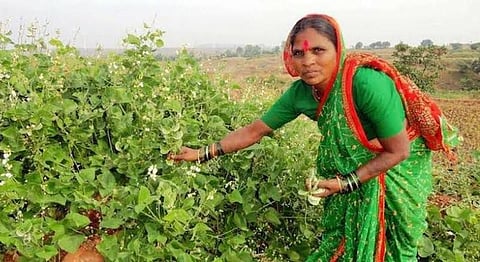
- HOMEGROWN WORLD
- #HGCREATORS
- #HGEXPLORE
- #HGVOICES
- #HGSHOP
- CAREERS
- ABOUT US
- CONTACT US

Selecting and saving a good seed is very crucial for sustainable agriculture and food security. Conservation and preservation of indigenous seeds is central to the concept of organic farming, but face the fear of extinction due to exploitation of hybrid and high yielding varieties by large seed companies. Native varieties are always superior, sustainable and cheaper than the hybrid varieties. Not only do they have high nutritive value, strong drought and disease resistance, but they also help to retain the soil fertility by consuming less chemical fertilizers and reducing water consumption. And not just this, conservation of native crops promotes genetic diversity and welfare of the farmers, who otherwise have to stay dependent on the hybrid companies for seeds as they cannot be saved for the next sowing season. So it becomes utterly critical to make people aware of the concepts like indigenous seed conservation, organic farming, wild food resources and agro-biodiversity for a rational lifestyle and food conservation.
One such contributor, who chose to take this responsibility on her shoulders, to not only create a seed bank for the farmers, but also educate them regarding traditional farming and irrigation methods, which will help them alleviate the dreadful impact of climate change and focus on the native seeds, was Rahibai Soma Popere. Known as the “Mother of Seeds”, she is the founder of Kalsubai Parisar Biyanee Samvardhan Samiti, a self-help group of women farmers who motivate farmers for conservation of native seeds. Hailing from the Kombhalne village of Ahmednagar district, she has managed to conserve various native seeds like 15 types of rice, 60 types of vegetables, 9 types of pigeon peas and many other oilseeds.
When she just migrated to Akola, she built water harvesting structures like pond and jalkund while working as a labourer. She started earning by making a two-acre wasteland into a productive field where she grew vegetables. Later, by learning how to rear poultry from the Maharashtra Institute of Technology Transfer for Rural Areas, she build her own nursery in the backyard. Skilled in four-step paddy cultivation, her crops have increased by 30% post advance cultivation implementation. She keeps on innovating new cultivation practices to improve her yield, like, cultivation of beans on farm bunds.
She has created her own seed bank, which successfully distributes 122 varieties of 32 crops, on a condition of returning double the amount taken, to maintain the preserved variety.
She travels across Maharashtra and beyond, collecting and conserving local seeds and making people aware of the importance of using native seeds. She also trains farmers on seed selection, pest management, ways to retain soil fertility and much more. She supplies them seedlings of native crops, to motivate them to shift to indigenous crops. So the farmers, who initially use to buy hybrid seeds on borrowed money, are now saving money by shifting to this seed bank of indigenous seeds.
Her contribution in preserving the genetic diversity had landed her five varieties of hyacinth beans in the Mahatma Phule Krishi Vidyapeeth, where they are currently evaluated for morphological and yield traits.
To promote her motive, she participated in the Indo-German Bilateral Cooperation in Seed Sector with various other local seeds and agricultural fairs. She has also applied for registration in Protection of Plant Varieties and Farmers’ Rights Authority. She wants to preserve 250 varieties of different crops and help 25000 households create vertical gardens so that she can ensure food security for tribals.
Apart from agricultural initiatives, her another self help group, Chemdeobaba Mahila Bachat Gat, organises health camps and solar lamp supplies.
Her efforts, which are making a very visible impact in the field of agriculture and biodiversity conservation, had been honoured on Women’s Day by Raghunath Mashelkar and many other institutes working in the same field.
If you enjoyed reading article, we suggest you read:
